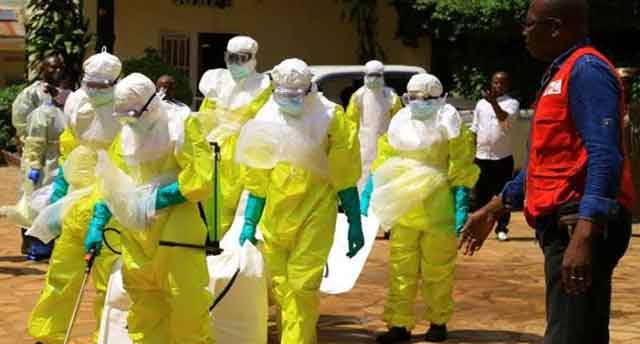
Kampala, Uganda | THE INDEPENDENT | The eastern province of the Democratic Republic of Congo-DRC has been declared free of Ebola Virus Disease by the World Health Organisation almost two years since the Ebola outbreak was declared in the country.
The Ebola outbreak which began in August 2018 in eastern DRC, has claimed the lives of 2,300 people. A total of 3,500 people were infected with 1,200 recoveries being reported. The Ebola hemorrhagic fever is transmitted to people from wild animals and spreads through human to human contact.
News declaring the end of the outbreak comes weeks after the country reported new cases of the disease on the eve of declaring it Ebola-free. At the moment, the country is handling its 11th Ebola outbreak in Mbandaka, Équateur province, the North-Western part of the country.
While addressing a virtual press conference on the end of the 10th Ebola outbreak in the country, Dr Matshidiso Moeti, the head of the WHO Africa region described the response to ending the Ebola outbreak as a challenging situation that often looked unattainable.
“It wasn’t easy, and at times it seemed like a mission impossible”, WHO Regional Director for Africa Matshidiso Moeti told journalists.
Dr Tedros Adhanom Ghebreyesus, the WHO director-general says that the Ebola response in the DRC ended up being a victory for the world as it fast-tracked the approval of Ervebo also known as rVSV-ZEBOV, as the world’s first vaccine against the disease.
“The outbreak took so much from all of us, especially from the people of DRC, but we came out of it with valuable lessons, and valuable tools”, said WHO Director-General Tedros Adhanom Ghebreyesus. Noting that a vaccine has been licensed, and effective treatments identified, the WHO chief stated that the world is now better-equipped to respond to Ebola.
According to Dr Ghebreyesus, the discovery of a vaccine against the disease has changed the playing field where people no longer have to die from vaccine-preventable death. Despite such news, only four countries on the African continent – DRC, Burundi, Ghana and Zambia, have licensed the use the drug as a preventable vaccine for the disease.
More than 400,000 people in DRC and its neighbouring countries were vaccinated using either the Ervebo or Jansen vaccine. At the height of the outbreak last year, Uganda reported three cases of the disease in Bwera, Kasese district. The cases were from one family which had entered the country after attending a burial in DRC.
In response to the outbreak, all nine countries surrounding the DRC were on high alert for the disease. Uganda spent over 70 billion Shilling in its response to the disease, testing more than 8,000 frontline health workers and contacts of suspected cases.
Despite the good news, Dr Monica Musenero, an Epidemiologist and also a presidential advisor on Epidemics says that the country will still be on the lookout.
“We welcome the news but this does not mean we shall reduce our disease surveillance in neighbouring countries. While Ebola is no more in North Kivu, there are COVID-19 cases and we need to focus on this to avoid the disease from spreading into communities,” she said.
Similarly, Dr Eteni Longondo, the Minister of Health in DRC says that the country will continue monitoring the Ebola situation in the Eastern part of the country to make sure no new cases spring up.
*********
URN
 The Independent Uganda: You get the Truth we Pay the Price
The Independent Uganda: You get the Truth we Pay the Price



